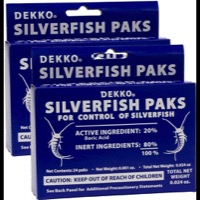Rid your home of silverfish
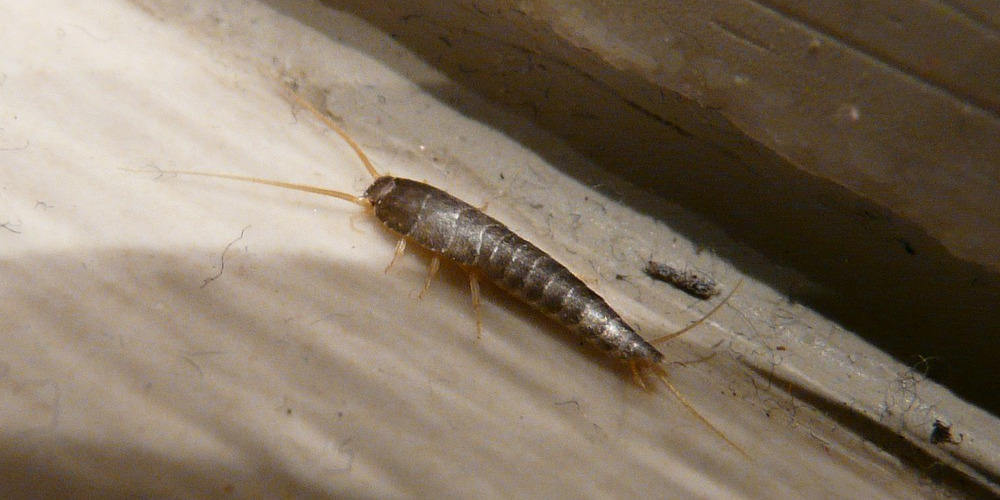
By Sigmund Daughty, Expert Reviewer for Repellent Guide
published: Feb 05, 2018 | updated: Feb 08, 2018
Say hello to Lepisma saccharina, a nasty little pest that you know by it's common name: “Silverfish.” It's fitting that this insect bears a moniker that sounds like a Bond villain's code name, because silverfish are as sneaky as well-trained covert operatives.
These insects tend to dwell in the shadows, hiding out in dark, dank locations such as basements and garages. Many people encounter a silverfish in or around their bathroom sink, a testament to the insect's fondness for humidity. Unfortunately, the old rule that applies to termites and cockroaches usually applies to the silverfish as well: when you've spotted one, there are probably dozens more still in hiding.
While silverfish may be one of the ugliest and most intimidating-looking insects you can stumble over, they're generally not harmful. Silverfish don't bite – although they do eat dead skin cells.
Why jump to that conclusion? Because the silverfish is nocturnal, making its stealthy moves while you're sleeping – and not only do silverfish move quickly, they reproduce quickly to boot. Females lay clutches of up to 20 eggs a time, and that means plenty of time for exponential population growth while maintaining solid cover.
To add to their list of skills, silverfish are adept at living in nearly any environment. Hot or cold, wet or dry, they'll find a way. Because silverfish nymphs develop faster in areas that are humid, you can expect to find them thriving more prolifically in moist environs.
Armed with this bit of knowledge, you can make your first defensive move against an infestation by controlling the humidity in your home. As a measure of both controlling humidity and cutting off access points, it's a good idea to caulk baseboards and other crevices, such as the gaps around plumbing pipes. In areas that aren't climate controlled, such as sheds and some garages, you can mitigate the risk by removing some of their favorite accommodations: wet clothing, stacks of old paper, and old storage boxes.
TIP: While not a cure-all, using dehumidifiers can help make your home less hospitable to silverfish.
TIP: Are you actively searching for an infestation? Be sure you open and inspect all of your storage boxes and check for signs of damage, feces, or actual insects.
As with any insect, leaving food or trash around will only increase your chances of silverfish infestation. Part of any preventative plan should include stringent housekeeping and general cleanliness. Pay special attention to food crumbs and open products in your pantry. Remember that these insects move at night to forage, and once they've located a source of food, they tend to set up their nest nearby. Though silverfish aren't known to carry disease, this is definitely not something you want going on near your food.
TIP: Keep all open food in sealed containers. Leaving things like rice, cereal, and potato chips in their original, unsealed bags after opening them is an invitation to hungry insects. Use plastic, air-tight containers whenever possible.
Silverfish feed on sugars, starches, and other carbohydrates – this includes cellulose, which is why paper, books, and even clothing are favorite targets. These feeding habits give you another method of detecting their presence - apart from finding one waiting for you in the bathtub. Look for signs of damage on paper products (pay special attention to old books and boxes) and keep your eye out for silverfish feces. Their feces looks like small, black flecks, pepper-like in appearance.
TIP: Be sure to vacuum your carpet regularly. This is a great way to eliminate insect eggs that may be hiding out in the pile. Not only is this effective against silverfish, but it's a critical step to keeping a home with pets free of fleas.
Taking the fight to the bugs
If you've found a possible infestation and you're fed up with silverfish running covert ops in your home, there are a number of ways to fight back. Your options run the gamut from simple, homebrew traps to all-out chemical warfare. Which route you choose will likely depend on your situation – especially if you have children or pets in your home.
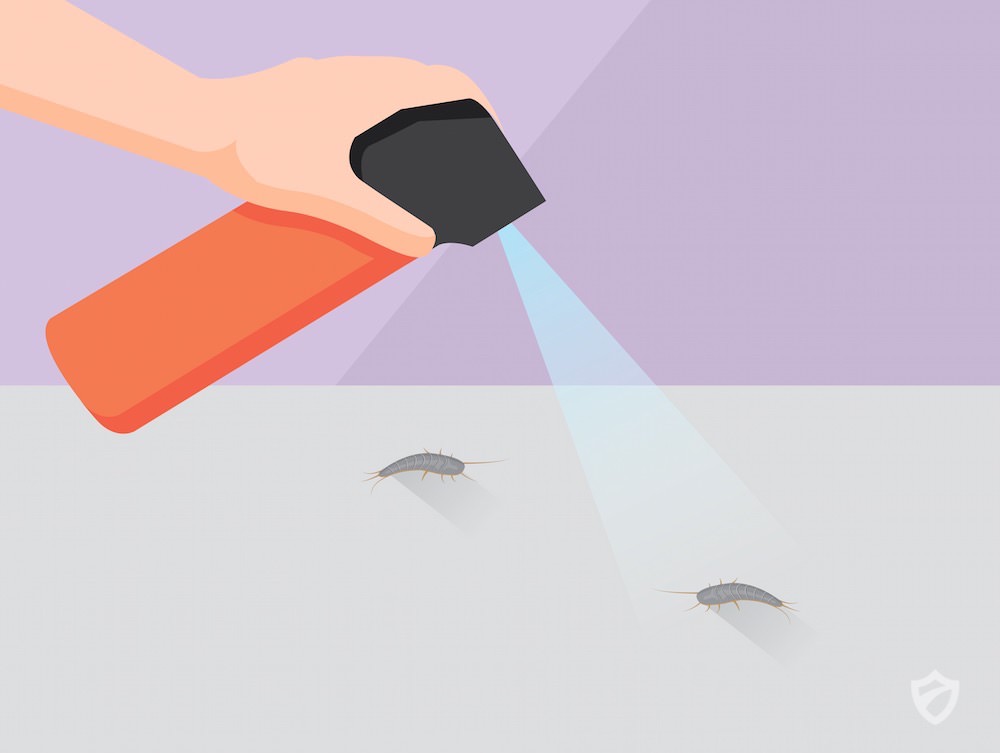
Lay out an IED (Improvised Extermination Device)
Also known as a “homemade trap” or “this thing that s'posed to catch bugs” to civilians. There are a few different methods to crafting a homemade silverfish trap, and you may need to experiment with a few of them to see results.
TIP: Bear in mind that the severity of your infestation will play a part in how effective these methods are in the long run; a smaller number of silverfish will obviously yield fewer results as the scant numbers will be less compelled to leave their established ranging areas to explore your traps.
The Rolled Up Newspaper
You've seen the rolled up newspaper in action as an offensive weapon, but it's not just useful for delivering blunt force trauma to bugs. Dampen the newspaper before rolling it up and then secure it with rubber bands. Leave this seemingly-innocuous tube of death on the floor overnight, and in the morning you may find it populated with resting silverfish. What you do with them at that point is up to you, but we do not recommend trying to wrestle information out them. Silverfish will rarely give up the location of their nest through coercion.
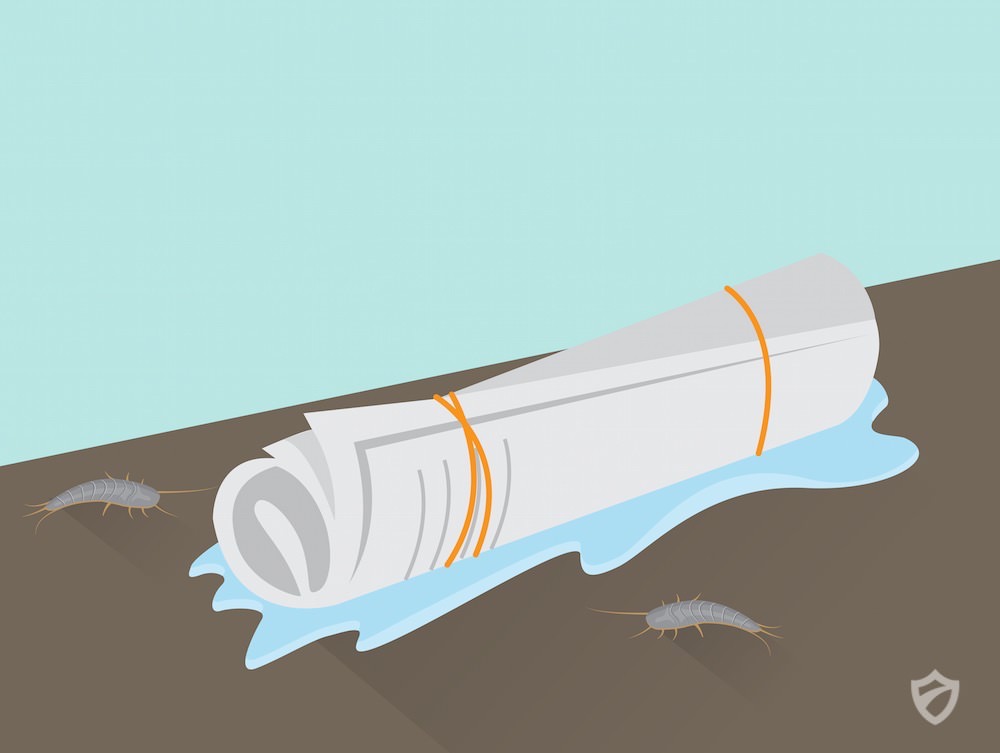 If this method fails to trap any silverfish, you can also re-purpose the newspaper for a different tactic: simply cut out that week's panel of “The Family Circus” and affix it to the floor. Any insect foolish enough to read the bland, yet timeless, comic will be bored into immediate surrender.
If this method fails to trap any silverfish, you can also re-purpose the newspaper for a different tactic: simply cut out that week's panel of “The Family Circus” and affix it to the floor. Any insect foolish enough to read the bland, yet timeless, comic will be bored into immediate surrender. The Bell Jar
Given the name based on the Sylvia Plath novel, simply to make a jar/trap reference that seemed way more compelling before I started writing it. Anyway, this homemade trap involves taking an open jar and covering the outside with masking tape, then placing bait inside. Put the jar in a strategic location, such as any route marked with a “silverfish crossing” sign, and let it sit overnight. The bugs can crawl into the jar, but will be trapped inside, unable to climb the smooth inner walls. Sylvia Plath.
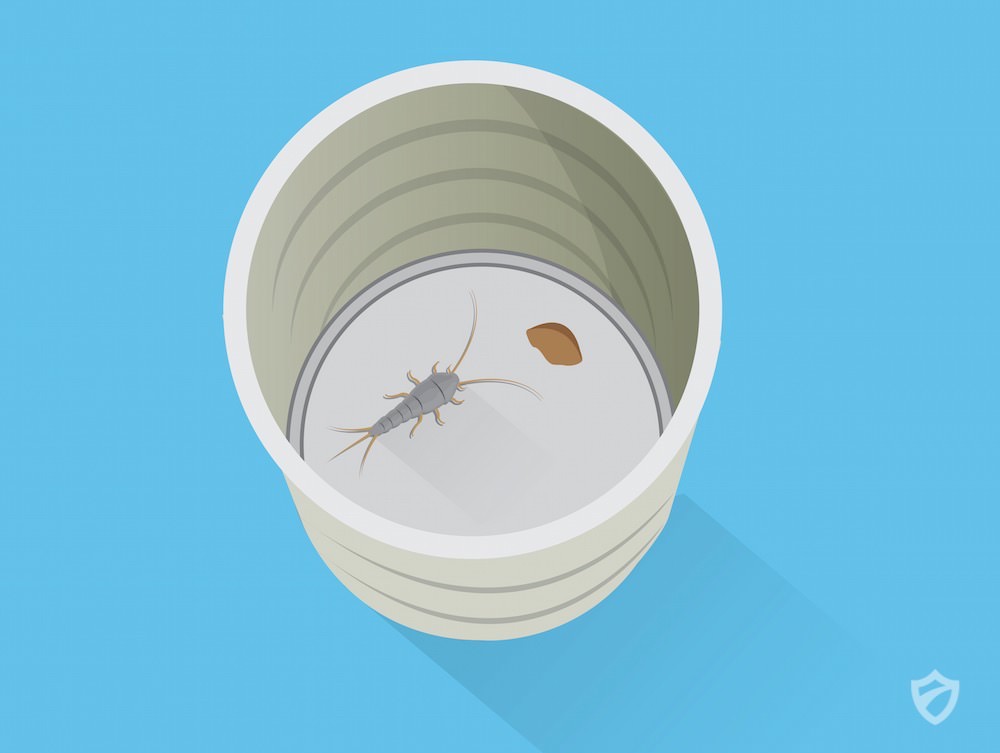
TIP: There are several options for silverfish bait. Use bread, sugar water, or moist cotton for the best effect. We do not recommend using the “Warner Brothers” method of dressing up as a female silverfish.
Natural Methods
If you're one of those hippie types who cares about “trees” and “not poisoning the family dog,” then these methods are probably your best bet. Just remember that silverfish don't play by the rules, and they certainly don't care about the Geneva Convention. All bets are off, amigo.
Herbs & Spices
If Colonel Sanders had actually been in the military, then he probably would have approved of this strategy. Use spices such as cinnamon, clove, bay leaves, or sage as a means of repelling silverfish. They don't like the strong aroma, and you can use that to your advantage by placing the herbs in a porous satchel and sticking the whole deal in a place where silverfish are likely to congregate.
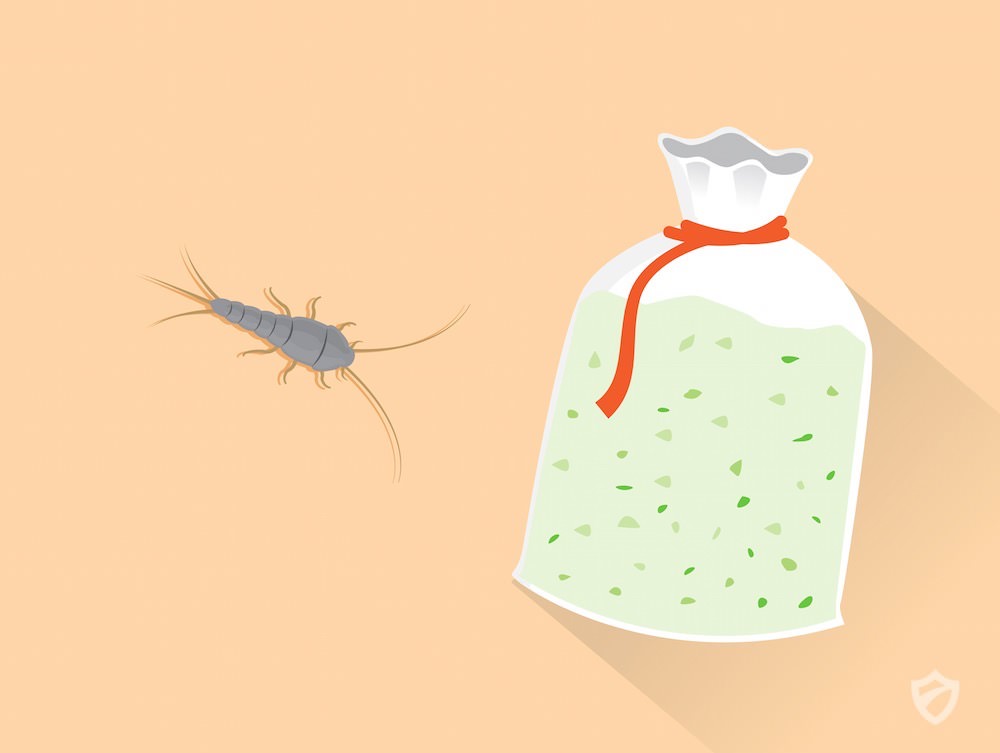
Diatomaceous Earth (DE)
Get the food-grade stuff and spread the white powder wherever insects may roam (including baseboards and crevices.) The ground-up sedimentary rock will dehydrate any silverfish that walks over it, killing it. It'll stay effective as long as it's dry, so when using it in bathrooms or soggy basements, you might need to use multiple applications. It's safe for kids and pets, but DE is also used in the manufacture of dynamite, which is kind of cool. Diatomaceous earth is actually used to stabilize dynamite, which means it actually makes it explode less. Cool points revoked.
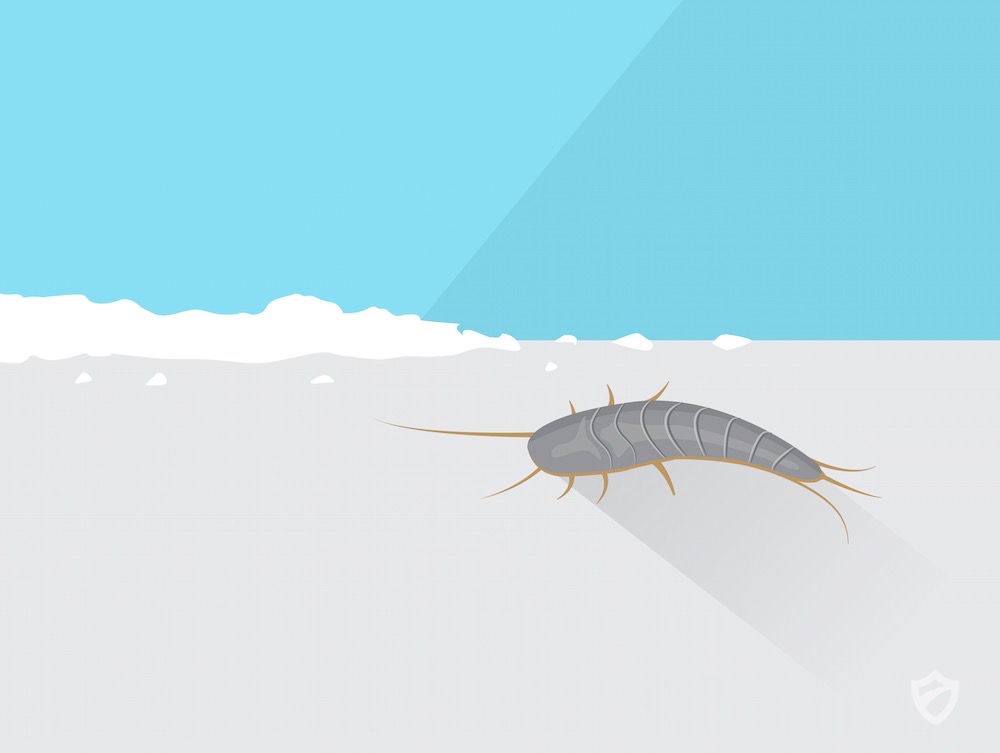
Citrus Aroma
Smell is an effective weapon on the modern bug battlefield. If you're not down for making little sachets of bug-repellent potpourri using herbs, then feel free to step up your game with citrus sprays. Put the lemon-scented oven cleaner away – it won't work – and look for sprays specifically designed for repelling bugs.
Cedar blocks or shavings
It's becoming clear that silverfish are real sticklers for smells, which is pretty uppity for such a pug-ugly bug. Cedar is yet another thing that repels silverfish with its distinct aroma. Use shavings, chips, or solid blocks of this wood in your closet or beneath your sinks to help keep these pests away.
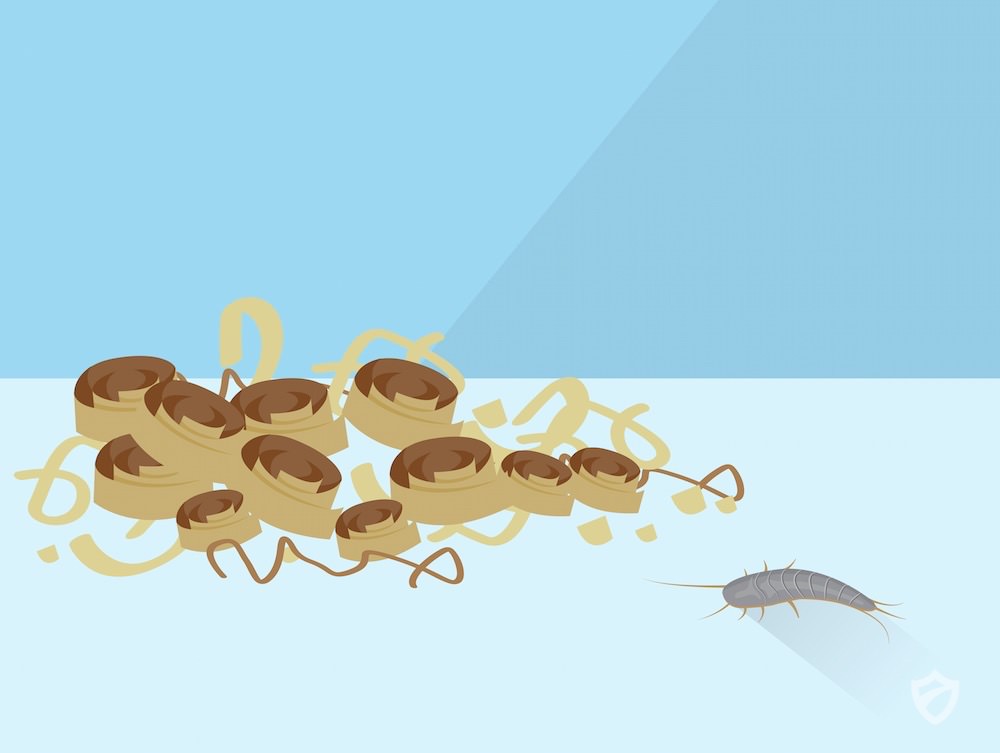
Hooray for Chemicals
Welcome to the 21st century, where there's no problem we can't solve by spraying it with a chemical. All joking aside, you'd be wise to explore the more natural options listed above if you have children or pets to worry about. Several of the below methods, while effective, can be pretty harmful to little people or furry companions.
In any case, be careful when using chemical pest control methods. Don't use the following products near food, prep surfaces, or utensils. Always follow the instructions provided with the product.
Boric acid
If you've heard this name thrown around in bug-killing discussion, it's for good reason. This natural pest-killer usually comes in a powder form, making it easy to “dust” all of the little nooks and crannies in your home – and it kills nearly any insect that comes in contact with it. Not only is it great for removing silverfish, boric acid is effective against cockroaches, fleas, and household ants. If you're looking for the “nuclear option” against bugs, this might be it. We recommend wearing a mask when using the powder, as boric acid is toxic and you don't want to breathe it.
Liquid pyrethrin
Most commercial silverfish eliminators will contain this chemical. Use it in the same way you would Boric acid, spraying it into cracks around baseboards, windows, pipes, and other dark places. This chemical kills adult silverfish, but it doesn't kill the eggs, so you may need to use it continuously for several days to win the war of attrition.
Final Notes
The best solution is prevention, so observe the tips at the beginning of this article to help keep your home from becoming infested. If you're too late and the silverfish have already gone Cold War on your bathroom sink, then it's advisable to try natural methods to counter the attack. If that fails, or you'd rather strike back with a vengeance, then there are a few chemicals that will generally get the job done.
Not all infestations can be handled on your own. If your attempts seem to be falling short, then don't hesitate to contact a professional with a license to kill (bugs.)

